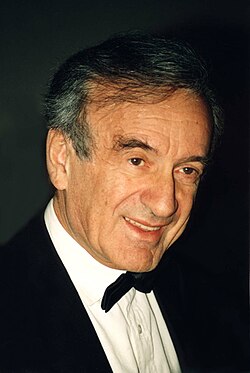Elie Wiesel Quote
Related Quotes
Your driver is on the steer, driving you and you can feel free to doze in the car; this is trust built on competence. Competence is to ensure that your actions put people's hearts at ease when things...
Israelmore Ayivor
Tags:
at ease, best, car, competence, competency, competent, competent actions, competent hands, doze, drive
Most police cars are the equivalent of an electrical room on wheels and it does not surprise me that police officers that spend time in such a biologically toxic environment are displaying aggression.
Steven Magee
Tags:
aggression, biologically, car, cars, display, displaying, displays, electrical, environment, environmental
When the fuel is dried up in a vehicle, it stops driving automatically. You are a vehicle in the spiritual and the physical world, so you need some oil for alacrity, in order to get to your destinatio...
Michael Bassey Johnson
Tags:
ability, achievement, alacrity, car, competition, conquer, conquering, destination, destiny, distance
About Elie Wiesel
Eliezer "Elie" Wiesel (September 30, 1928 – July 2, 2016) was a Romanian-born American writer, professor, political activist, Nobel laureate, and Holocaust survivor. He authored 57 books, written mostly in French and English, including Night, which is based on his experiences as a Jewish prisoner at Auschwitz and Buchenwald during the Holocaust.
As a political activist, Wiesel became a regular speaker on the subject of the Holocaust and remained a strong defender of human rights during his lifetime, advocating for justice in numerous causes around the globe, including that of Soviet Jews and Ethiopian Jews, South African apartheid, the Rwandan genocide, the Bosnian genocide, the War in Darfur, the Kurdish independence movement, the Armenian genocide, Argentina's Desaparecidos, Nicaragua's Miskito people, the Sri Lankan Tamils, and the Cambodian genocide. He was also an outspoken advocate for Israel and frequently weighed in to support the country during escalations of the Arab–Israeli conflict and throughout the Iran–Israel proxy conflict, while also hosting direct talks to facilitate the Israeli–Palestinian peace process.
Wiesel was a professor of the humanities at Boston University, which created the Elie Wiesel Center for Jewish Studies in his honor. He received a number of awards, including the Nobel Peace Prize in 1986. He was a founding board member of the Human Rights Foundation and remained active in it throughout his life. Wiesel was one of the main figures who spearheaded the establishment of the United States Holocaust Memorial Museum in 1993.
As a political activist, Wiesel became a regular speaker on the subject of the Holocaust and remained a strong defender of human rights during his lifetime, advocating for justice in numerous causes around the globe, including that of Soviet Jews and Ethiopian Jews, South African apartheid, the Rwandan genocide, the Bosnian genocide, the War in Darfur, the Kurdish independence movement, the Armenian genocide, Argentina's Desaparecidos, Nicaragua's Miskito people, the Sri Lankan Tamils, and the Cambodian genocide. He was also an outspoken advocate for Israel and frequently weighed in to support the country during escalations of the Arab–Israeli conflict and throughout the Iran–Israel proxy conflict, while also hosting direct talks to facilitate the Israeli–Palestinian peace process.
Wiesel was a professor of the humanities at Boston University, which created the Elie Wiesel Center for Jewish Studies in his honor. He received a number of awards, including the Nobel Peace Prize in 1986. He was a founding board member of the Human Rights Foundation and remained active in it throughout his life. Wiesel was one of the main figures who spearheaded the establishment of the United States Holocaust Memorial Museum in 1993.
